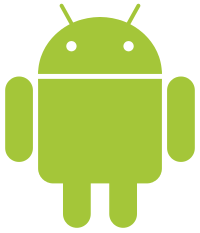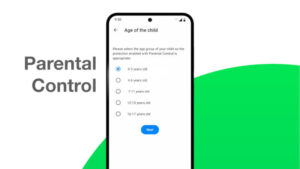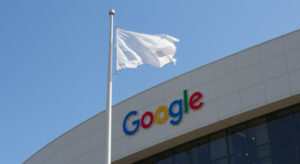Have you been trying to put your finger on exactly what it is you don’t like about Android and iOS? Maybe this will help.
I’ve finally defined what it is I don’t like about Android — or about any mobile device for that matter. I’ve grappled with this issue for several years, boiling my dislike of Google’s operating system down to “it’s always trying to sell something.” But that wasn’t quite it, and I knew it. The selling thing is a symptom, not the disease, so to speak.
Then, one day last week I finally had my aha! moment and realized precisely what it is I don’t like about mobile devices. I was reading a pretty good article by Steven J. Vaughan-Nichols, his take on the death of computing as many of us know it, when I came across a line that was basically meant as an aside, and suddenly I understood why I don’t like Android or iOS and never will.
“Instead of PCs, we have smartphones, which aren’t really all that smart if you want to do more than consume data.”
With that line came clarity. I could suddenly put my finger on why I can’t understand why my roommate spends hours on her Nexus 7, but hardly ever opens the lid on her really nice laptop. The later might compel her to do something thoughtful, while the former allows her to thoughtlessly while away the hours, which might be why I can’t spend five minutes on a tablet or phone without laying it aside. I bore easily unless I’m actively involved.
 Smart phones and tablets are all about passive consumption, which is the same complaint many voiced about television back when the TV set was the dominate in-home technology of the day. In that sense, mobile devices are like television on steroids. They’re used to watch videos on Netflix and YouTube, to peruse social sites, maybe check email and to go on passive shopping trips without even having to get off the couch.
Smart phones and tablets are all about passive consumption, which is the same complaint many voiced about television back when the TV set was the dominate in-home technology of the day. In that sense, mobile devices are like television on steroids. They’re used to watch videos on Netflix and YouTube, to peruse social sites, maybe check email and to go on passive shopping trips without even having to get off the couch.
About the only thing that’s created on mobile devices are photographs, which might explain the tendency people have to take pictures of absolutely everything instead of actually enjoying the moment. Don’t believe me? The next time you go to a rock concert, notice how many in the audience are busy taking pictures to post on Facebook instead of enjoying the show.
Back in the days before there was an Internet, I spent about as much time on my computer as I do today, which is a lot. Without email and without Facebook, Twitter or YouTube, I was still more than able to find uses for it. I spent hours writing essays for myself, articles for newspapers and letters to friends and relatives to be sent by what was not yet known as snail mail. Yes, I wasted some time letting the computer passively entertain me, as even then there was solitaire and minesweeper.
These days I still use computers mostly to create. Mainly I write, but I also play around with making music (I’m not good at it) and creating videos (I show promise, but I’m not there yet). Indeed, like everyone else, I waste plenty of time visiting with friends on Facebook and taking stupid online quizzes, but I doubt I’d use computers at all if the consumption of media was all they had to offer.
And that’s the trouble with Android. The fact that it’s always trying to sell something is merely its intended purpose and how it pays Google to keep it healthy.
Christine Hall has been a journalist since 1971. In 2001, she began writing a weekly consumer computer column and started covering Linux and FOSS in 2002 after making the switch to GNU/Linux. Follow her on Twitter: @BrideOfLinux







I have a great deal of sympathy with this. I’ve lost count of the number of times I’ve read of the “death of the desktop” but I don’t want to work on a tiny screen (I love my 24 inch!).
This is why there are so many arguments over the “death of the desktop”:
Both sides are right.
For the masses, it’s already happened. For those whom computers were a means to an end that can now be fulfilled by phones and tablets, the desktop is already dead. For proof: Look at PC sales. It’s not merely a slump due to another bad Microsoft OS, it’s a bottomless pit.
For creators on the other hand, a large screen and comfortable keyboard/mouse are true requirements.
Increasingly though, even more demanding creator requirements can be met by ever smaller computers so long as the I/O devices (screen, keyboard, etc.) are up to the task. A Raspberry Pi is a perfectly serviceable desktop replacement. The days of big PC’s are over.
Taken to a conclusion, I foresee two possible end results:
1) Ridiculously small computers for even demanding needs, served by a variety of I/O devices to fit both consumer and creator roles. Wireless display technology is key to this, allowing any size screen to be chosen to fit the current user need.
2) Further schism between creator and producer roles. To see what this looks like see H.G. Well’s “The Time Machine”, i.e. the Eloi and the Morlocks. Somebody’s going to get eaten.
Would this make the iphone “The Other Glass Teat?”
I second/third the “my computers are for creation, my phablet is for consuming” thing. Aside from phone calls and simple messaging, my big-screen phone is primarily an e-reader. I hate typing on that screen. And why should I, when I have a nice 15″ laptop with a full-sized keyboard *and* a desktop computer that also has a nice, big keyboard.
My wife has a 15″ Chromebook that she uses to watch Netflix (and other) videos more than anything else. Other purposes = email and Skype calls with kids/g-kids.
I know people who don’t have smarty phones and don’t want them, and a few people (including the cardiologist I see) who don’t like computers, period. Each to their own, y’know?
I am now entering my squinter season…gimme one or more big screens any day. I’m looking for an app that allows me to remote onto my faux-smart phone from my PC just so I can use a real keyboard and don’t have to squint! I’d rather not have to hold that thing near my head at all.
Stevo,
It’s proprietary, but Teamviewer allows users to control their smart phones from their desktops. I haven’t encountered a FOSS solution yet, but it would be cool if one existed.
Honestly, one can create with tablets and phones, but more powerful editing exists on the desktop. I don’t see the smart devices as getting rid of desktops but supplementing and complementing them over time.
This reminds me of the mouse vs keyboard (and by proxy, gui vs cli) debate. We still have the keyboard, because typing is still a thing and we still have the command line due to demand from power users. I don’t see the desktop or general purpose computing going away but evolving.
Thdre are two types of people; those that think Smartphones are cool and those that think.